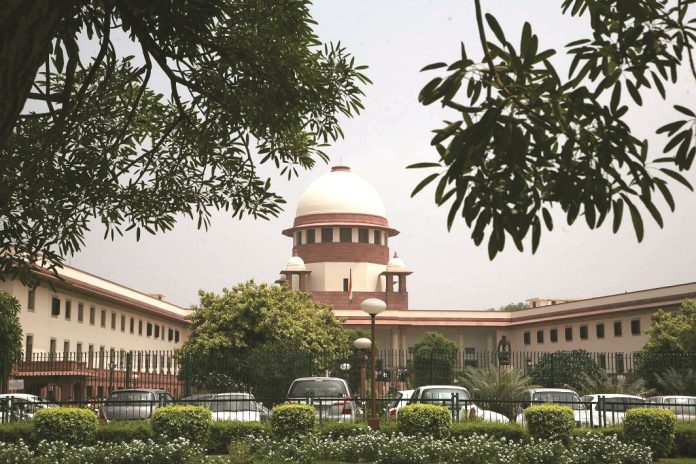The Apex Court, while admitting a petition filed by the Government of National Capital Territory of Delhi (GNCTD) on Tuesday, came forward to defer the oath-taking of former Allahabad High Court Judge Justice Umesh Kumar, who was to join as the Chairperson of the Delhi Electricity Regulatory Commission (DERC).
The appointment was challenged by the Delhi Government on the grounds that it was unilaterally made by the LG without its concurrence.
The Bench of Chief Justice of India DY Chandrachud and Justice PS Narasimha noted that the petition raised a point of law regarding the validity of Section 45D of the GNCTD Act, as amended by the latest Ordinance issued by the Centre, which gave overriding powers to the Lieutenant Governor over the elected government in the matter of appointments.
The Bench issued notice to the Attorney General on this point of law and posted the matter for next Tuesday for further hearing.
The Apex Court was inclined to stay the notification appointing the former judge as the DERC Chairman. However, it refrained from expressly doing so and recorded the statement that the oath taking ceremony will stand deferred.
The Bench recorded in its order that the administration of oath in pursuance of the notification dated… to the former judge of the Allahabad High Court judge shall stand deferred.
Senior Advocate Dr Abhishek Manu Singhvi, appearing for the Delhi Government, sought for a stay of the notification appointing Justice Kumar, by saying that the oath-taking ceremony was scheduled on Thursday.
Singhvi argued that the unilateral action by the LG was against the Supreme Court’s Constitution Bench judgment and also the spirit of Article 239AA of the Constitution.
When the Delhi Government paid for the Commission and was accountable to the electorate, Singhvi wondered if it won’t get the right to choose the Chairman.
The senior Counsel argued that as a political executive, the government gave power of 200 units to the poorest of poor in Delhi. It was the most popular scheme in Delhi. Now, they want to appoint someone and stop that, he alleged.
Solicitor General of India Tushar Mehta pointed out that Justice Kumar was appointed after taking the concurrence of the Chief Justice of the Allahabad High Court, as directed by the Supreme Court on May 19.
At this point, the CJI asked who wrote to the HC Chief Justice seeking his concurrence, the LG or the government?
The SG repklied that the LG sought concurrence of the High Court chief Justice.
Following this, the Bench decided to pass the interim order.
The SG said that it was the function of the Government to administer the oath, which they have been delaying since June 22 by giving one reason or the another.
He requested the Apex Court not to give a stamp of approval to the fact that they the Delhi government was already deferring this since June 23. He further contended that the GNCTD had been dodging this on one reason or the other.
The CJI then responded that it would stay the notification, which the Apex Court was already inclined to do, but somehow, it wanted to give a different feel to this.
Senior Advocate Sanjay Jain, appearing for the LG, informed the Bench that the retired judge recommended by the Delhi Government, Justice Rajeev Kumar Shrivastava, has declined to accept the post citing personal difficulties.


